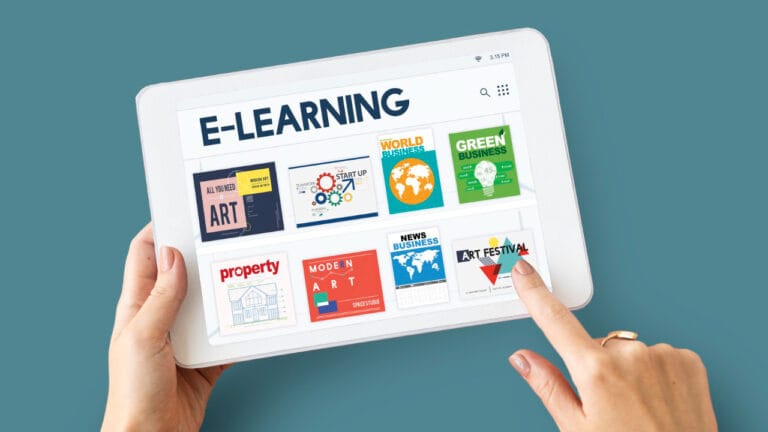
Looking to enhance your small business’s training programs without breaking the bank? A Learning Content Management System (LCMS) could be just what you need. These platforms help streamline content creation, delivery, and tracking, making it easier for you to provide top-notch training for your team.
Choosing the right LCMS can transform how efficiently your business operates. With so many options out there, it’s crucial to find one that fits your unique needs and budget. In this article, we’ll dive into some of the best LCMS solutions tailored specifically for small businesses, ensuring you make an informed decision that benefits both you and your employees.
Understanding Learning Content Management Systems

Learning Content Management Systems (LCMS) play a crucial role in organizing and delivering educational content effectively. They are particularly beneficial for small businesses aiming to streamline training processes.
What Is a Learning Content Management System (LCMS)?
An LCMS is a software platform designed to create, manage, and deliver e-learning content. It allows you to develop engaging training materials, track learner progress, and analyze performance data. By centralizing your content in one place, an LCMS makes it easier to update courses and ensure consistency across all training programs.
Importance of an LCMS for Small Businesses
Implementing a Learning Content Management System (LCMS) can be transformative for small businesses. It offers several key advantages that can significantly enhance your training programs.
Streamlines Content Creation
An LCMS simplifies the process of creating educational materials. You can easily develop, edit, and update content without needing extensive technical skills. Systems available in the market offer intuitive drag-and-drop interfaces that make content creation straightforward.
Delivers Cost-Effective Solutions
Budget constraints are common in small businesses; therefore cost-effective solutions are vital.. that provides affordable plans catering specifically to smaller enterprises while still offering comprehensive features found in larger systems.
Enables Scalability
As your business grows, so do your training needs. An LCMS should be scalable solutions that evolve with your organizational growth without compromising on quality or efficiency in delivering education.
Promotes Collaborative Learning
Encouraging collaboration among employees enhances their learning experience. Systems available in the market offer features like discussion forums and group projects to foster a collaborative environment within your training programs.
Facilitates Compliance Management
Meeting regulatory requirements is critical for many industries. Robust compliance management tools that ensure your employees stay updated on necessary certifications and standards.
Supports Customization
Tailoring your training programs to meet specific business needs is crucial for effectiveness. With platforms available in the market, you can customize courses to align with company goals and branding guidelines effortlessly.
Improves Resource Efficiency
By centralizing your learning resources in one place, an LCMS reduces redundancy and saves time. Moodle’s centralized repository feature allows easy storage and retrieval of educational content, minimizing duplication efforts.
Tracks Learner Progress
Monitoring learner progress is essential for effective training management. Solutions available in the market offer detailed reporting tools that track engagement and performance metrics, helping you identify areas where learners may need additional support.
Enhances Training Delivery
Delivering training becomes seamless with an LCMS. Platforms in market provide mobile compatibility, allowing employees to access training anytime, anywhere. This flexibility ensures consistent learning experiences across your organization.
Criteria for Selecting the Best LCMS
Choosing the right Learning Content Management System (LCMS) can transform your small business training programs. Here’s what you should consider:
Cost-Effectiveness
Identify cost-effective solutions that fit your budget without compromising on features. Look for transparent pricing models and evaluate whether they offer a free trial or demo period to test their capabilities before committing.
User-Friendly Interface
Seek platforms with intuitive, user-friendly interfaces. An easy-to-navigate system ensures that both administrators and learners can quickly adapt without extensive training, enhancing overall productivity.
Customization and Scalability
Ensure the LCMS allows for customization to match your brand’s look and feel. Verify its scalability to grow alongside your business needs, accommodating more users or advanced features as required.
Integration and Interoperability
Check if the LCMS integrates seamlessly with other software you use, such as HR systems or CRMs. Effective interoperability prevents data silos and streamlines process across different departments.
Mobile Compatibility
Prioritize mobile-compatible systems that enable learning on the go. A responsive design ensures that content is accessible from any device, boosting learner engagement and flexibility.
Customer Support and Training
Opt for providers offering robust customer support and comprehensive training resources. Responsive support teams can address issues promptly, while thorough training materials ensure you maximize the platform’s potential.
By focusing on these criteria, you’ll find an LCMS that not only meets but exceeds your small business’s e-learning needs.
Features to Look for in an LCMS
Choosing the right Learning Content Management System (LCMS) can make a significant difference in your training programs. Here are key features you should consider:
Reporting and Analytics
Look for robust reporting and analytics tools. These features help you track learner progress, course completion rates, and engagement levels. Available systems in the market offer detailed reports that provide insights into how learners interact with content, enabling data-driven decisions to improve training programs.
Gamification
Consider gamification elements like badges, leaderboards, and points systems. These features boost learner engagement by making learning more interactive and fun. Available systems in the market includes built-in gamification options that motivate employees through rewards and recognition.
Collaboration Tools
Ensure the LCMS has collaboration tools such as discussion forums, chat functions, and group projects. These tools foster a collaborative learning environment. Available systems in the market excels in providing various collaboration functionalities that encourage teamwork and peer-to-peer learning.
Certification and Course Renewal
Check for certification management capabilities. This feature allows you to issue certificates upon course completion and manage renewals automatically. Available systems in the market supports easy certification tracking ensuring compliance with industry standards.
Support for Various Media Formats
Verify support for different media formats including video, audio, PDFs, and interactive quizzes. This flexibility ensures diverse content delivery methods cater to various learning styles. Available systems in the market are known for their extensive media support facilitating rich multimedia courses.
Tips for Successful Implementation of LCMS in Small Businesses

Implementing an LCMS can significantly boost your training programs’ efficiency. Here are some tips to ensure a smooth and successful integration.
Define Clear Objectives
Set specific goals for what you want to achieve with the LCMS. Identify key performance indicators (KPIs) such as completion rates, knowledge retention, or skill improvements. Clear objectives help you measure success and make necessary adjustments.
Provide Adequate Training
Ensure your team knows how to use the new system effectively. Offer comprehensive training sessions and create easy-to-follow guides or video tutorials. A well-trained team will maximize the benefits of your LCMS from day one.
Encourage Employee Engagement
Promote active participation by making learning interactive and rewarding. Use gamification elements like badges, leaderboards, and quizzes to keep employees motivated. Engaged employees are more likely to complete their courses and apply new skills on the job.
Regularly Evaluate and Update
Consistently assess the effectiveness of your LCMS by gathering feedback from users and analyzing performance data. Make updates based on this information to keep your content relevant and engaging. Regular evaluations ensure that your training programs evolve with your business needs.
Difference Between LMS and LCMS
A Learning Management System (LMS) focuses on the delivery and management of training programs. It helps you enroll users, assign courses, and monitor completion rates. An LCMS, on the other hand, goes deeper into content creation. While both systems offer tracking capabilities, an LCMS provides robust tools for developing customized learning materials from scratch.
| Feature | LMS | LCMS |
|---|---|---|
| Primary Focus | Delivery & management of training | Creation & management of learning content |
| User Enrollment | Yes | Limited |
| Course Assignment | Yes | No |
| Progress Tracking | Basic | Advanced |
| Customization Tools | Minimal | Extensive |
Understanding these differences can help you choose the right system based on your specific needs—whether it’s managing existing courses or creating new ones from the ground up.
Final Thought
Choosing the right Learning Content Management System can transform your small business’s training programs. By aligning with your specific needs and budget, an LCMS can streamline content creation and delivery while tracking learner progress effectively.
Remember to focus on key features such as user-friendly interfaces robust reporting tools gamification elements collaboration capabilities certification management and mobile compatibility. Implementing these strategies ensures that your training programs not only meet but exceed expectations driving growth and success in your small business.


